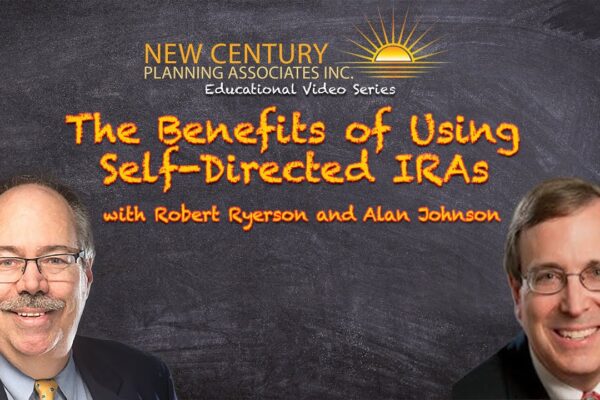Financial Planning for Major Life Events: What You Need to Know
For many people, financial planning may not appear to be an absolute necessity. However, anyone can benefit from a bit of financial planning to improve their finances, particularly in terms of major life events. Certain monumental events in your life can benefit from the advice of a financial planner. If you are approaching one of these events, here is more information about how you can adjust your financial plan to best suit your future finances.
Establishing a Financial Plan
 The first step toward improving your finances is to establish a basic financial plan, which would include a detailed look at your expense budget and income sources, including any ability to save money above and beyond your expenses. But it is important to keep mind that your financial plan should have some flexibility in order to accommodate changes in your life. You will need to make a point of reassessing your financial plan before and after important life events in order to ensure that they still meet your needs and help you on the path toward achieving your financial goals.
The first step toward improving your finances is to establish a basic financial plan, which would include a detailed look at your expense budget and income sources, including any ability to save money above and beyond your expenses. But it is important to keep mind that your financial plan should have some flexibility in order to accommodate changes in your life. You will need to make a point of reassessing your financial plan before and after important life events in order to ensure that they still meet your needs and help you on the path toward achieving your financial goals.
Couples are waiting longer than ever to tie the knot in today’s world, and with that delay in getting married comes more complex finances. If you wait to get married until you are in your 30s or even later, you and your partner will likely already have a substantial financial base involving multiple bank accounts, credit cards, and maybe even retirement accounts. Prior to your marriage, you might consider working with a lawyer to put a prenuptial agreement together, particularly if either you or your partner is entering into the marriage with children or substantial investments. While this notion may not be romantic, it can protect you financially. Not every couple chooses to combine their finances, but if you do decide to do so, it could turn into a complex process that could benefit from working with a financial planner.
Similarly, if you are going through a divorce, there are a number of important financial considerations that will need to be handled, such as updating your will, ensuring that your investments are protected, and changing your insurance policies, and beneficiary designations on various accounts or policies. These tasks should be handled by a financial professional in order to protect your interests, save time, and avoid mistakes.
 Starting a Family
Starting a Family
Having children can prove to be an expensive proposition, not only in regards to the immediate costs such as hospital bills, prenatal care, and baby clothes but also with regards to future costs such as college tuition. If you plan to have a baby is in the future, it is worth discussing your finances with a financial planner in order to ensure that you have a healthy financial plan in place prior to having a child. You will need to update and adjust your will and insurance policies and make sure you have planned for new expenses, which are all things that a financial professional can help you to navigate. In addition to these immediate expenses, it may be a good time to start a college savings fund for your new child, particularly when you consider the cost of a college education today.
 Obtaining An Inheritance
Obtaining An Inheritance
If you receive an inheritance from a family member, it is unquestionably a major event that you should discuss with a financial planner. You will want to ensure that you minimize the tax consequences that receiving an inheritance can bring, particularly if it is in the form of a lump sum. A financial professional can provide you with guidance in handling this sudden influx of cash so that you can put it to good use for your own personal financial situation. They can advise you on how to adjust your spending habits and provide you with advice on where to invest your money.
 Starting Your Own Small Business
Starting Your Own Small Business
Starting a small business can mean significant changes to your financial situation, as well. You should try to work with an accountant or financial planner who has experience in dealing with small businesses or with the particular type of business you are in so that you can obtain relevant advice for the specific size and type of business you are starting. A significant amount of time will be required to decide on the structure of your business, to register a name, and to obtain an employer identification number (EIN) for tax purposes. Depending on the eventual size of your business, you might also need to look for an attorney and accountant and financial planner.
 Approaching Retirement
Approaching Retirement
While you have hopefully been preparing for retirement long before you approach retirement age, it is absolutely critical that you consult with a financial professional as you approach retirement. An advisor can help you to maximize your investments and manage the transition to income production for life-which will replace all or a good part of your earnings from your job. Tax planning is also critical for most pre-retirees. It can also prove helpful to meet regularly with a financial planner in order to reassess your retirement savings, particularly during your peak earning years (typically during your 40s and 50s, although it can be different). Mismanaging your assets during this critical time could prove detrimental to your overall retirement savings. A financial planner can help you to reassess your investments, create a budget, and determine how much you will need in order to achieve the retirement that you want.
Author
Robert Ryerson
Although Robert M. Ryerson completed all the necessary requirements to earn bachelor of arts degrees in both English and economics at Rutgers University, college policy at the time prohibited the issuance of dual degrees. As a result, he graduated from Rutgers with a single bachelor of arts in economics before finding employment as a stockbroker with Shearson Lehman American Express in New York City 1984. Robert M. Ryerson has since established himself as a respected estate administrator and legacy planner. In addition to his economics degree from Rutgers, Mr. Ryerson holds several professional designations including Retirement Income Certified Professional (RICP)®; Certified In Long Term Care (CLTC)®; Certified Financial Fiduciary (CFF)®, and Certified Identity Theft Risk Magenament Specialist (CITRMS)®. He has shared his knowledge on the subject of identity theft as the author of the book What’s The Deal With Identity Theft?: A Plain-English Look at Our Fastest Growing Crime. He has also covered identity theft issues directly for students as the instructor of the adult education course Understanding Identity Theft: Our Fastest Growing Crime.






